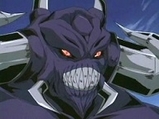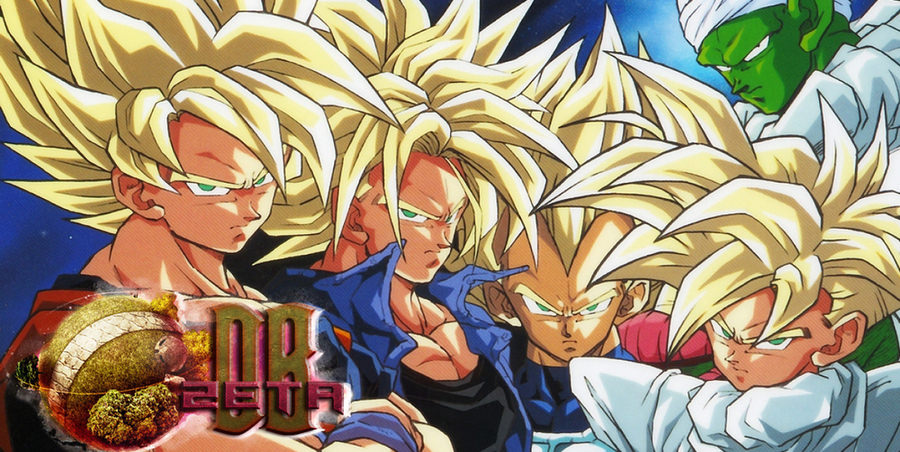[mention]Kenshi[/mention] I'll go over all but Kenshiro and Shinji here since they're the only ones that'd require much of a thread regarding analysing their character writing and covering all of them in a thread of Shonen protagonists would lack much uniformity (that, and Shinji can only really be fully classed as a Shonen protagonist in the manga and Manga Shinji is

due to its ending being a time reset).
Ryo Saeba
Ryo's dual nature of goofy and badass is a nice way of having him shift personality without it messing with the series' tone and his backstory does help allude to his comedic and perverted side being a coping mechanism for his unorthodox childhood. However, the series' fairly episodic structure heavily limits what development he'd have as a character with only a few arcs building up to something more and, thus, making his character fairly static. In that regard, Onizuka and perhaps Spike Spiegel are better versions of characters with similar traits.
Joe Yabuki
Joe is a character who has improved with the series' ageing as it allows him to stand out even more as a Shonen protagonist. Rather than being a well-intentioned boy scout, he's as selfish as a protagonist can be whilst also showing many traits that represented the Japanese youth and working class of the time such as the disdain for rich snobs. It's upon the introduction of Rikiishi that his character starts to shine as he slowly humbles himself and is able to see the faults he made in wronging Danpei and the like; and it's upon Rikiishi's death that Joe fully grows as a character with his PTSD from their match and coming to realise the depths of what their rivalry meant to him and his sense of both goals and self-worth.
His character strength is also his flaw in that his inspirational desire to keep on boxing for the sake of those who were left behind like Rikiishi and Carlos only comes about from him having faced them and is ultimately what would lead to him burning out like grey ash. Overall, a perfectly constructed character for the type of story he was within that, whilst somewhat simplistic in his linear arc, has a great amount of depth to his journey.
Hanamichi Sakuragi
It's very nice to see this character grow from one who's only interest in starting to play basketball was to get a girl turn into someone who places trust in his teammates and puts everything into the game. Unfortunately, the type of story being told also limits his potential. For instance, what would it mean to Sakuragi's character if Shohoku lost an important game such as the Sannoh match, or if Haruko ended up in a relationship with someone like Rukawa? These would be high-stake situations to Sakuragi, but would they be enough to crush all he'd worked towards if they happened? This is a main reason why I consider Joe to be the pinnacle of a sports series protagonist or why I consider the cast of Real to be superior to Slam Dunk's; when the stakes are ones that lack permanent repercussions and focus solely on the sport, it vastly limits what character drama can be achieved.
Yusuke Urameshi
I'd lower him down to a 6 as his portrayal within the Spirit Detective and Dark Tournament Arcs has him be the typical street punk with a heart of gold that makes him a poor man's version of Jotaro, since at least Jotaro came up with good strategies and had more subtle moments of character chemistry such as his teamwork with Kakyoin in the Wheel of Fortune Arc. It's only in the Chapter Black Arc do we see a new side to Urameshi in what makes him tick and stand out compared to a more generic Shonen protagonist. During the Sniper fight and before Hiei's intervention, we see how much Yusuke hates this constant emergence of new threats rather than welcoming or accepting it as many Shonen protagonists would. This is a pretty realistic take on the formula and could've made Yusuke a good deconstruction of the Battle Shonen protagonist in much the same way Shinji is the deconstruction of the mecha pilot, but Togashi decided to just have power creep take over the end of the arc and vastly limit the potential he'd made for good ideological struggles. As poor as the Three Kings Arc is, Yusuke's meeting with Yomi was a good moment in making him unique as he fully accepted that demons had to eat humans to survive in a mature manner, unlike the modern Shonen lead who'd probably shout "you can't do this!" Still, that's pretty much his only stand-out moment there and Yusuke ended up being a great premise ruined by mediocre execution.
Gon Freecs
Despite seeming simplistic compared to his companions like Killua and Kurapika, Gon is a fairly well constructed and three-dimensional character for similar reasons to Part 1 Galu. One thing often overlooked about him is his young age and what that'd mean to his mentality. Gon's actions throughout the story are subtle in being self-centred as, like a child will be, he cares more about how they limit him than whether or not they're good or bad. Take into account how he has no problem teaming up with a killer and former Troupe member like Hisoka in Greed Island despite the rage he felt towards Nobunaga. The former was a situation that benefited him whilst the latter placed it in one that limited his journey and was against people who actively opposed his friend.
This makes his dark turn during the palace infiltration very consistent with his character as his moral compass is a very self-centred one in what benefits him and those close to him. In that, we see a subtle nod to the one quality he shares with his father that characters never bring up.
That said, Gon is a very well made take on the dangerous aspects of a child's simplistic morality, though whether or not that sticks will yet to be seen when the series comes out of Hiatus X Hiatus long enough for Gon's post-Alluka characterisation to be expanded on.
Yugi/Atem
The premise of both sides of this character was good. Yugi is a boy who's experiences with his other half allowed him to grow enough to become independent whilst Atem had enough of a cruel streak to make him unique for a Shonen lead and the teamwork they produced as the series went forward lead to it being a good case of split personality. Unfortunately, the premise is ruined by Yugi's personal involvement in Battle City and Millennium World being too limited for his independence in the final duel to be earned and Atem being an amnesiac until the

fight made his genuine character growth non-existent when it was just getting back to square one, not to mention him suddenly being rewritten as a less sadistic character once the Duellist Kingdom started.
Ash Ketchum
No permanent character development after 1,000+ episodes and becoming virtually asexual after the first 10 episodes. Need I say more?

2
Sinnoh Ash was a good realisation of his accumulated experiences, though that got immediately ruined by Black/White. X/Y Ash could've been a return to form if he didn't get snubbed for Champion yet again and his only case of taking home the glory in a game canon region was against the worst competition ever faced.
Alphonse Elric
The way in which he bounces of Ed's personality and skills makes for very good character chemistry and teamwork. Though Barry the
Faggot Chopper's mind games ended up amounting to a wild goose chase, the existential questions it posed to Al helped bring up very important aspects to consider on FMA's world building. Al also has a nice juxtaposition in being a gentle giant and his nature with things such as small animals compared to Ed, which helps further flesh out his character.
Alphone's character is best displayed in its quality within his confrontation with Kimblee in which it's shown that despite his talent and strategic thinking, he is at his core still a child. The debate they have in terms of the Elrics' moral code and goal as well as its contradiction help present how unrealistic the idealistic nature of most Shonen protagonists are and the ultimate outcome of the war helps prove both sides. Equivalent exchange was needed to defeat Father and restore the Elric brothers' bodies and this debate was a key moment in explaining Alphonse realising he would have to sacrifice himself for the greater good against Father rather than achieve the goal he set out to. Even with the somewhat happy ending that came for the Elrics, they indeed weren't able to save everyone as several notable characters died in the exchange and even the Homunculi that could be reasoned with were all killed. Definitely one of the most fleshed out and developed deuteragonists in Shonen.
Kenshin Himura
At its core, Kenshin's arc of seeking redemption for his past crimes is a simple one, but it's in its execution that it becomes one of the medium's best redemption arcs. Kenshin's backstory shows how learning the value of life was ultimately a difficult road for him and, much like with Ryo Saeba, his comedic moments in his easy-going nature can be seen as his way of coping with it and attempting to escape the past, as does his moral code. It's during the Kyoto Arc that he really starts to develop as a character with his training under Seijuro, as his learning of the Amakakeru Ryu no Hirameki was more than just a power up and serves to both highlight and improve his philosophy. In trying to fully abandon the Battousai history and placing such value on the lives of others, Kenshin was also devaluing his own life, but it's in the last moments of his duel with Seijuro when close to death that he's able to understand his life and existence aided in the improvement of many others despite his past. This is a far deeper take on the typical friendship resolve due to Kenshin's history and is closer to something such as the protagonist's arc in the film It's A Wonderful Life, except with cool ronin action.
This ends up leading to more character development in the Jinchu Arc in which Kenshin is forced to accept the possibility he couldn't save all those he cared for and the reality of this after having been proven right for so long brings him into a state of depression and nihilism towards his moral code. It's only once being reminded of the reality, that more people would simply die from Kenshin's inability to act, that his redemption is fully realised as he heads towards the final battle. Even after all that, his scar remains, signifying that although he has been redeemed the past cannot be easily forgotten, nor should it when it was this road of trust and betrayal that lead to his redemption.
Ippo Makunochi
'Nuff said on why Ippo's a 5/10 at best.



 due to its ending being a time reset).
due to its ending being a time reset). fight made his genuine character growth non-existent when it was just getting back to square one, not to mention him suddenly being rewritten as a less sadistic character once the Duellist Kingdom started.
fight made his genuine character growth non-existent when it was just getting back to square one, not to mention him suddenly being rewritten as a less sadistic character once the Duellist Kingdom started. 